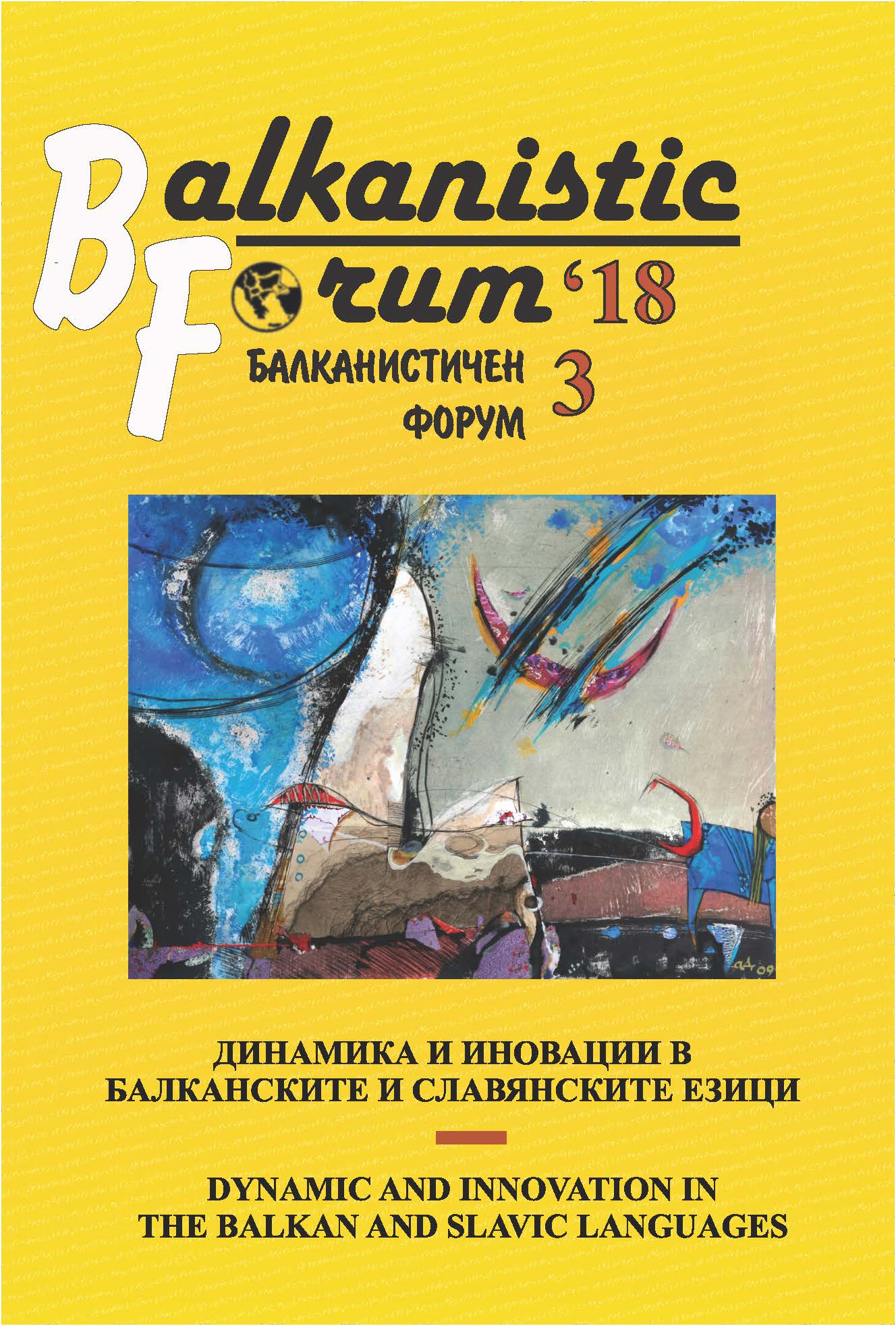The Semantic Spectrum of the Lexeme "Zakonnik"
(On Material of Modern Russian Media)
The Semantic Spectrum of the Lexeme "Zakonnik"
(On Material of Modern Russian Media)
Author(s): M. D. Ivina, E.I. SeliverstovaSubject(s): Language studies, Language and Literature Studies
Published by: ЮГОЗАПАДЕН УНИВЕРСИТЕТ »НЕОФИТ РИЛСКИ«
Keywords: Semantic; Russian language; modern Russian media
Summary/Abstract: In the article we note separate historical stages in the formation and development of the semantics of the word "zakonnik (lawyer, legalist)" in Russian. On the example of journal-istic texts from the National Corpus of the Russian language and some other periodicals, the semantic spectrum of the modern word is analyzed. The word, which had several se-mantic variants already in the 19th century, preserved and expanded its polysemantic character. The analysis allows us to identify the modern meanings of the word and the possibility of its usage in fundamentally different spheres of social life in Russia – both regulated by legal norms and criminal, in which the word legalist as belonging to thieves' slang is synonymous with the name of the main thief authority (the thief in law). At the same time, the available dictionary data does not reflect the whole diversity of the seman-tic spectrum of the word. Features of the functioning of the token lexeme are manifested in the presence of a wide range of connotations – positive and negative, generated by ex-tralinguistic factors and reflecting the modern consciousness of Russian native speakers. The main attention is paid to objects that are nominated by this word (mostly names of persons: judge, lawyer, prosecutor, policeman, bailiff, etc.), and various aspects of the activity of lawyers, estimated by the speakers – in this case by journalists. When connota-tive nuances of words are identified in the context, the authors of the article rely on its lexical environment, which allows to highlight those characteristics of the person and / or his activity that deserve a positive or negative evaluation. An appeal to the language of the mass media seems to be effective, because of its ability to reflect quickly the changes occurring in the language, as well as the prevailing moods and opinions about certain aspects of public life in society.
Journal: Балканистичен Форум
- Issue Year: 2018
- Issue No: 3
- Page Range: 21-35
- Page Count: 15
- Language: English
- Content File-PDF

